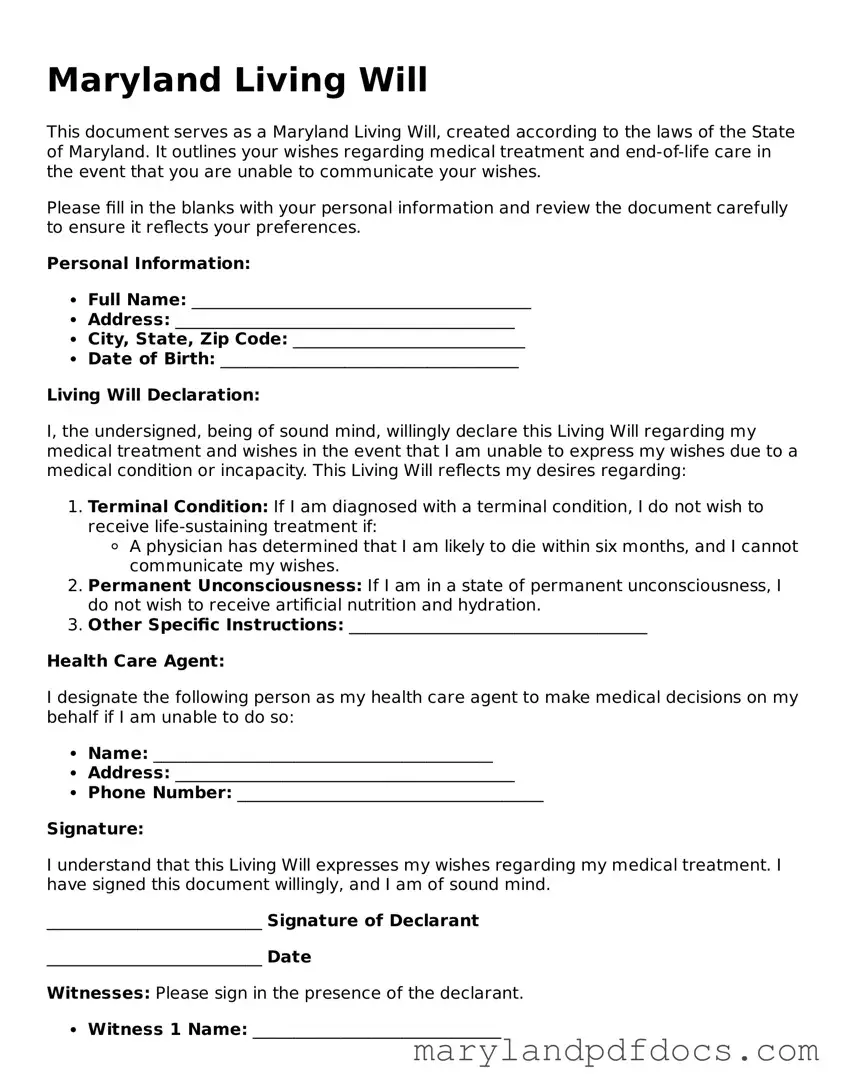What is a Maryland Living Will?
A Maryland Living Will is a legal document that allows individuals to express their wishes regarding medical treatment in the event they become unable to communicate those wishes themselves. It specifically addresses end-of-life care and can guide healthcare providers and family members in making decisions that align with the individual’s values and preferences.
Who should consider creating a Living Will?
Anyone over the age of 18 should consider creating a Living Will. This document is particularly important for individuals with serious health conditions or those who wish to ensure their medical preferences are known in case of incapacitation. Having a Living Will can provide peace of mind for both the individual and their loved ones.
How do I create a Living Will in Maryland?
To create a Living Will in Maryland, you must fill out the appropriate form, which can be obtained from various sources, including healthcare providers and legal websites. The form must be signed in the presence of two witnesses who are not related to you and do not stand to gain from your estate. Once completed, it is advisable to share copies with your healthcare providers and family members.
Can I change or revoke my Living Will?
Yes, you can change or revoke your Living Will at any time. To do this, simply create a new Living Will that clearly states your updated wishes, or you can destroy the original document. Inform your healthcare providers and family members about any changes to ensure everyone is aware of your current preferences.
What happens if I do not have a Living Will?
If you do not have a Living Will, your family members or healthcare providers may be required to make decisions about your medical care without knowing your preferences. This can lead to confusion and disagreements among loved ones during a difficult time. Having a Living Will helps ensure that your wishes are honored and can alleviate stress for your family.
Is a Living Will the same as a Power of Attorney?
No, a Living Will and a Power of Attorney are different documents. A Living Will focuses specifically on your medical treatment preferences, while a Power of Attorney allows you to designate someone to make financial or legal decisions on your behalf. You may want to consider creating both documents to ensure comprehensive planning for your future.
Do I need a lawyer to create a Living Will?
No, you do not need a lawyer to create a Living Will in Maryland. However, consulting with a legal professional can be beneficial if you have specific questions or complex situations. Many resources are available to help you complete the form correctly and ensure your wishes are clearly articulated.
Where should I keep my Living Will?
It is important to keep your Living Will in a safe but accessible location. Consider storing it in a secure place, such as a locked drawer or file, while also providing copies to your healthcare providers and trusted family members. Informing loved ones about the document’s location ensures they can access it when needed.

